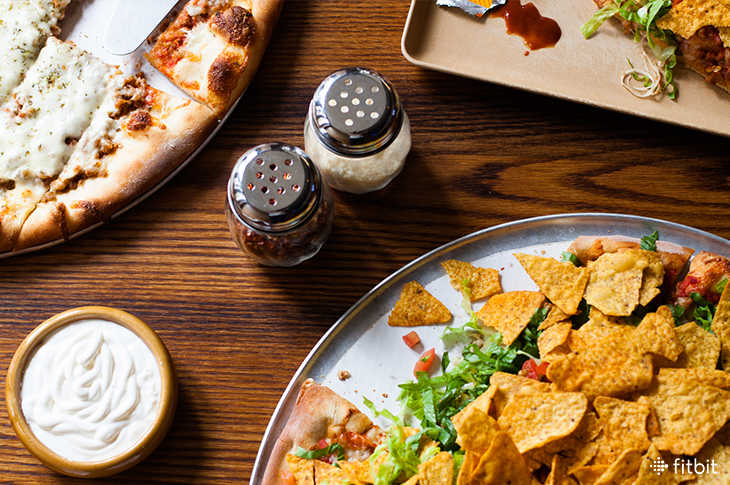
Every Monday, do you promise to make smart food choices all week? Do you grab a healthy breakfast, pack a good lunch, and make a plan to get your steps in? But sometimes, those good intentions slide as you get into the swing of a crazy week. By Friday, you’re heading out to happy hour, ordering burgers and pizza, and dreaming of donuts and bacon at brunch. It’s the weekend! Maybe you’ll start over again on Monday.
If you’re a healthy eater during the week who tends to binge on the weekends, you may need to rethink your strategy. A recent study accepted for publication in the journal of Molecular Nutrition & Food Research reveals that eating junk food a few days a week can be just as bad as eating it all the time.
For the study, researchers put a group of rats on a low-fat diet; a second group on a junk-food diet; and a third cycling back and forth. For four days, the animals in the third group ate low-fat foods, and then for the following three days, they munched on meat pies, French fries, cake, and cookies. At the end of 16 weeks, the scientists compared how much food the rats ate, how much weight they gained, and changes in their gut microbiota (healthy bacteria naturally found in the intestine).
As you might expect, the rats who were on a steady diet of junk food gained the most weight, by 30 percent. But the rats who binged didn’t fare much better. They gained 18 percent, lost interest in healthy foods when offered, and, most shocking, got a punch to the gut. “For the rats who ate an unhealthy diet continuously, we saw a very concerning shift in their microbiota,” explains Margaret Morris, co-author of the study and head of pharmacology at the University of New South Wales Australia. “But the real revelation is that we saw the exact same trend in rats who cycled on and off. Any junk at all was enough to shift the biota, and potentially do damage to the gut.”
What does this mean for you? If you live for cheat days, consider switching to a single cheat meal instead. It’s likely overeating in one sitting won’t throw your system totally out of whack, the way an entire day or several days in a row of poor eating would. “If you eat healthy foods most of the time, and then you have a piece of cake or a burger, that should be okay,” Morris reassures. “One or two meals spaced out over a full week probably won’t make a significant difference.”
Good gut health is a hot topic these days, as researchers seek more treatment options for inflammation, irritation, and leaking. But even if you’re not suffering from any of those conditions or discomforts, it’s worth paying attention to the weight gain concern.
“What’s novel is that we’re understanding more and more about how the gut matters to our health. A healthy diet matters in important ways, and supports this machinery, this factory of mini-organisms. The more unhealthy your diet, the less diverse the organisms in your gut become,” says Morris. “Avoiding processed foods and unhealthy fats is key. Fiber and green leafy vegetables are vital. Alcohol definitely hurts, and we’re learning that exercise may help.”
This article is not intended to substitute for informed medical advice. You should not use this information to diagnose or treat a health problem or condition. Always check with your doctor before changing your diet or starting a new fitness routine.
Do you have a hard time eating well on the weekend? Join the conversation below.
This information is for educational purposes only and is not intended as a substitute for medical diagnosis or treatment. You should not use this information to diagnose or treat a health problem or condition. Always check with your doctor before changing your diet, altering your sleep habits, taking supplements, or starting a new fitness routine.

If you have questions about a Fitbit tracker, product availability, or the status of your order, contact our Support Team or search the Fitbit Community for answers.
Please note: Comments are moderated and may not appear immediately after submission.